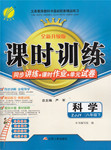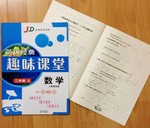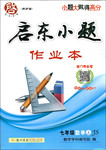Here’s the situation. You’re sitting at the table listening to the conversation when your cellphone rings. There is something very important that wants your attention. Maybe your phone buzzed for an email, text message, Facebook post or tweet. You don’t know unless you check your phone. You may be feeling a strong case of FOMO: Fear of Missing Out.
You may think that a quick check of your phone isn’t rude. Your companions probably disagree. A recent study of cellphone use found that most US adults think checking your phone is rude in social situations.
The study found that only 5 percent of Americans felt that checking your cellphone during a meeting is acceptable. Only 12 percent support checking your cellphone during a family dinner.
The study said, “Americans think that when people focus on their phones instead of their companions, it hurts the group in which they are taking part.”
People can be offended when they feel ignored. They also don’t like others who talk too loudly or share private information in public when using their phones.
About three-fourths of US adults view using cellphones in public as acceptable when using public transportation, waiting in line, and walking down the street. But most US adults disapprove of cellphone use at the dinner table, in movie theater, meetings, and places of worship.
People might use their cellphones in social situations because they see others doing it: 86 percent of people surveyed said that someone else used a phone at the most recent social event they attended. People may use their phones at social events to share something from the event. That might be a photo, information, or to free from the group.
1.The writer starts the passage by ________.
A. listing the uses of cellphones
B. imagining a scene in life
C. discussing the bad influence of cellphones
D. talking about a chat on cellphones
2.If you use your cellphones in social situates, others will feel that they aren’t ________.
A. interested in taking B. friendly enough
C. valued by you at all D. sharing useful information
3.Where do most Americans accept the cellphones use?
A. Seeing a movie in the cinema.
B. Attending a meeting.
C. Having a dinner with families.
D. Riding in the public vehicles.
4.What might be the most suitable title for the passage?
A. Is it Rude to Use Cellphones Among Friends?
B. Putting Aside Your Cellphones for Your Friends
C. Keeping in Touch with Your Friends with Cellphones
D. Avoid Borrowing a Cellphone from Your Friends
 课时训练江苏人民出版社系列答案
课时训练江苏人民出版社系列答案 黄冈经典趣味课堂系列答案
黄冈经典趣味课堂系列答案 启东小题作业本系列答案
启东小题作业本系列答案 课时训练江苏人民出版社系列答案
课时训练江苏人民出版社系列答案 黄冈经典趣味课堂系列答案
黄冈经典趣味课堂系列答案 启东小题作业本系列答案
启东小题作业本系列答案